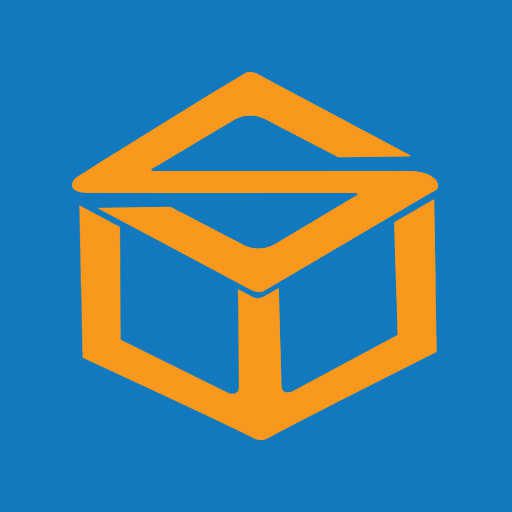Description

ashop

Inoday eCommerce Solution
Comprehensive Overview: ashop vs Inoday eCommerce Solution
Overview of Ashop and Inoday eCommerce Solutions
A) Primary Functions and Target Markets
Ashop:
Primary Functions:
- Ashop is an eCommerce solution that provides a comprehensive platform for establishing and managing an online store. It typically offers functionalities such as product listing management, shopping cart integration, payment gateway integration, inventory management, and customer relationship management.
- Additional features might include marketing tools, SEO optimization, and analytics to track and improve sales performance.
Target Markets:
- Small to medium-sized businesses seeking an affordable yet robust solution to kickstart or enhance their online presence.
- Industries can vary widely but often include fashion, electronics, home goods, and digital products.
- Startups and niche market businesses looking to make a significant impact with lower upfront costs.
Inoday:
Primary Functions:
- Inoday is a technology solutions provider offering a variety of IT services, including eCommerce solutions typically integrated with larger ERP systems like NetSuite.
- These solutions encompass store design and customization, multi-channel capabilities, cloud-based integration, real-time analytics, and scalability features to support business growth.
Target Markets:
- Larger enterprises or businesses already operating within an ERP framework that require seamless integration of their eCommerce operations.
- Established businesses looking to integrate deeper supply chain, accounting, and customer service management into their online retail process.
- Industries might include manufacturing, wholesale distribution, and B2B services.
B) Market Share and User Base
Ashop:
- Market share and user base data specific to Ashop aren't typically as prominent as leading eCommerce giants like Shopify or WooCommerce, but they cater to a niche that favors ease of use and cost-effectiveness.
- User base often consists of small to mid-sized businesses requiring straightforward eCommerce functionalities.
Inoday:
- While Inoday might have a smaller direct eCommerce footprint, its integration with systems like NetSuite increases its reach, often representing a strategic choice for enterprises already within that ecosystem.
- A significant user base in the sectors requiring advanced ERP eCommerce integration.
C) Key Differentiating Factors
Between Ashop and Inoday:
-
Scalability:
- Ashop offers a simpler, more contained platform ideal for smaller businesses starting out, with scalability that might be outpaced as businesses grow.
- Inoday, on the other hand, provides scalability through integration with ERP systems that can manage complex and growing business needs.
-
Integration and Ecosystem:
- Ashop focuses heavily on creating a unique yet somewhat standalone eCommerce solution.
- Inoday shines in its ability to blend eCommerce functionalities seamlessly with comprehensive ERP solutions like NetSuite, offering an integrative approach to eCommerce management.
-
Target User Complexity:
- Ashop is tailored for users seeking user-friendly, turnkey solutions with relatively uncomplicated setup and maintenance.
- Inoday caters to users with existing IT infrastructure complexity, requiring bespoke solutions for integrating eCommerce with various business processes.
-
Customization and Flexibility:
- Ashop provides sufficient customization for small projects but might lack advanced feature flexibility without additional development.
- Inoday leverages its experience in IT services for custom development, offering highly tailored solutions for businesses with specific needs.
In summary, Ashop and Inoday serve distinct segments within the eCommerce domain, with Ashop focusing on simplicity and cost-effectiveness for smaller businesses and Inoday offering integrated, ERP-focused solutions for larger enterprises.
Contact Info

Year founded :
2004
Not Available
Not Available
Australia
Not Available

Year founded :
Not Available
Not Available
Not Available
Not Available
Not Available
Feature Similarity Breakdown: ashop, Inoday eCommerce Solution
To provide a feature similarity breakdown for ashop and Inoday eCommerce Solution, it's important to evaluate their core functionalities, user interfaces, and any unique features. Here's a comparative analysis:
a) Core Features in Common
Both ashop and Inoday eCommerce Solution are designed to facilitate online retail operations, so they share several core features:
-
Product Management:
- Both platforms offer comprehensive tools for managing product listings, categories, and inventories.
-
Shopping Cart and Checkout:
- Each provides a shopping cart system that supports various payment gateways for seamless transactions.
-
Order Management:
- Both solutions enable tracking and managing orders from placement to delivery.
-
Customer Management:
- They include features for managing customer data, communication, and support.
-
SEO and Marketing Tools:
- Basic SEO tools and marketing features (like discount codes and promotions) are common in both solutions.
-
Analytics and Reporting:
- Each offers analytics to track sales, customer behavior, and website performance.
-
Mobile Optimization:
- Both platforms are optimized for mobile devices, ensuring a smooth shopping experience across different devices.
b) User Interface Comparison
The user interfaces (UIs) of these two products can differ based on their focus and target audience:
-
ashop:
- Typically has a more straightforward, user-friendly interface aimed at small to medium-sized businesses.
- Offers a clean, minimalistic design that focuses on ease of use and quick setup.
- May provide a more templated approach, allowing users to get started without extensive customization.
-
Inoday eCommerce Solution:
- Often integrates with NetSuite solutions, bringing a more robust and slightly complex UI, which might cater to larger enterprises.
- The interface is likely to provide more customization options and deeper integrations with other business tools.
- May require more training for users compared to the more straightforward approach of ashop.
c) Unique Features
ashop:
- Simplicity and Affordability:
- Designed for ease of use, with simplified features that make it ideal for small to medium businesses or startups.
- Generally more affordable, appealing to businesses with limited budgets.
Inoday eCommerce Solution:
-
NetSuite Integration:
- Offers seamless integration with NetSuite ERP, making it a powerful option for businesses already using that ecosystem.
- Enables comprehensive financial, customer, and inventory management within one system.
-
Advanced Customization:
- Provides the ability to customize the solution extensively to meet the specific needs of larger enterprises.
-
Scalability:
- Known for better scalability, accommodating growth and more complex transactions over time.
These distinctions help businesses determine which solution aligns better with their needs based on the size, complexity, and specific requirements of their operations.
Features

Not Available

Not Available
Best Fit Use Cases: ashop, Inoday eCommerce Solution
The decision to choose an eCommerce solution like ashop or Inoday depends on the specific needs and characteristics of a business or project. Both platforms offer distinct features that can cater to different sets of requirements. Here's how they might be best utilized:
a) Best Fit Use Cases for ashop
-
Small to Medium-Sized Retailers:
- Ashop is a suitable choice for small to medium-sized businesses that seek an easy-to-use platform with basic eCommerce functionalities. Its user-friendly interface and straightforward setup process make it accessible for businesses without extensive IT resources.
-
Businesses Seeking Quick Deployment:
- Companies that need to launch an online store quickly can benefit from ashop’s simplicity and streamlined setup process.
-
Budget-Conscious Businesses:
- Ashop's pricing model might be more appealing to businesses looking to manage costs tightly. It generally offers competitive rates for its features, making it attractive for cost-sensitive businesses.
-
Basic Online Store Features:
- Businesses that need essential eCommerce functionalities, such as product listings, basic payment gateways, and simple inventory management without the need for extensive customization.
b) Preferred Scenarios for Inoday eCommerce Solution
-
Large Enterprises and Organizations:
- Inoday eCommerce Solution is well-suited for larger organizations that require robust and scalable solutions. It can handle a vast number of SKUs and high transaction volumes effectively.
-
Customization and Integration Needs:
- Businesses with complex needs that demand deep customization or integration with other enterprise systems (like ERP, CRM, or supply chain management solutions) may find Inoday preferable.
-
Mature Businesses with Established Operations:
- Established businesses looking to enhance their online presence with advanced features, such as AI-driven analytics, personalized experiences, and advanced marketing tools.
-
Industry-Specific Solutions:
- Inoday can cater to specific industry requirements due to its capacity for tailored solutions, making it ideal for sectors like manufacturing, distribution, or retail requiring specialized functionalities.
d) Catering to Different Industry Verticals or Company Sizes
-
Ashop:
- Targets primarily small to mid-sized retailers across various sectors. Its main strength lies in providing a straightforward path for businesses to get online with minimal fuss or investment. Ideal for industries like fashion, small electronics, or specialty retail where rapid deployment is critical.
-
Inoday eCommerce Solution:
- Serves a wide range of industries, including manufacturing, wholesale, and large-scale retail that require extensive customization. It is designed to meet the demands of enterprise-level clients, providing tools that support complex sales cycles and supply chain operations. Inoday’s adaptability makes it a strong choice for verticals that need tailored solutions, such as automotive, pharmaceutical, or advanced consumer electronics industries.
Both solutions have their unique strengths and can effectively meet the needs of their target market segments. Businesses should choose based on their specific size, industry demands, and the complexity of their eCommerce needs.
Pricing

Pricing Not Available

Pricing Not Available
Metrics History
Metrics History
Comparing undefined across companies
Conclusion & Final Verdict: ashop vs Inoday eCommerce Solution
To provide a conclusion and final verdict for Ashop and Inoday eCommerce Solutions, we will analyze each platform based on the available information and form recommendations for potential users.
a) Best Overall Value
Both Ashop and Inoday eCommerce Solutions offer various products designed to cater to different eCommerce needs. The best overall value can depend heavily on specific business requirements. However, in general:
-
Ashop might offer better value for small to medium-sized businesses that prefer a user-friendly interface alongside a comprehensive set of eCommerce tools, including features like SEO optimization, inventory management, and integration with multiple payment gateways.
-
Inoday eCommerce Solution might provide better value for larger enterprises or businesses already using the Microsoft ecosystem. Inoday’s integration capabilities with Microsoft Dynamics ERP and CRM systems make it a strong contender for existing Microsoft users.
b) Pros and Cons
Ashop:
-
Pros:
- User-friendly platform suitable for small and medium businesses.
- Comprehensive eCommerce features including SEO, marketing tools, and responsive design.
- Competitive pricing structure with a focus on offering value.
-
Cons:
- May lack advanced customization capabilities needed by larger enterprises.
- Limited integration capabilities with non-partnered software systems.
Inoday eCommerce Solution:
-
Pros:
- Excellent integration with Microsoft Dynamics products, ideal for businesses using Microsoft’s suite.
- Scalability for growing businesses with complex needs.
- Solutions tailored to enterprise-level requirements.
-
Cons:
- Higher complexity and potentially steeper learning curve for new users.
- Potentially higher cost, especially for smaller businesses not leveraging full Microsoft integration.
c) Recommendations for Users
-
For Small to Medium Businesses: If your business prioritizes cost-effectiveness, ease of use, and does not need extensive ERP or CRM integrations, Ashop is likely the better choice.
-
For Enterprises or Microsoft Users: If your business requires robust integration with Microsoft Dynamics or you anticipate needing a highly scalable solution to manage complex operations, Inoday eCommerce Solution would be more suitable.
In conclusion, both Ashop and Inoday eCommerce Solutions present strong offerings with distinct advantages. The final decision should be based on the scale of the business, existing technology ecosystem, and specific eCommerce requirements. Users are encouraged to trial each platform and assess which aligns better with their operational and strategic needs.
Add to compare
Add similar companies



